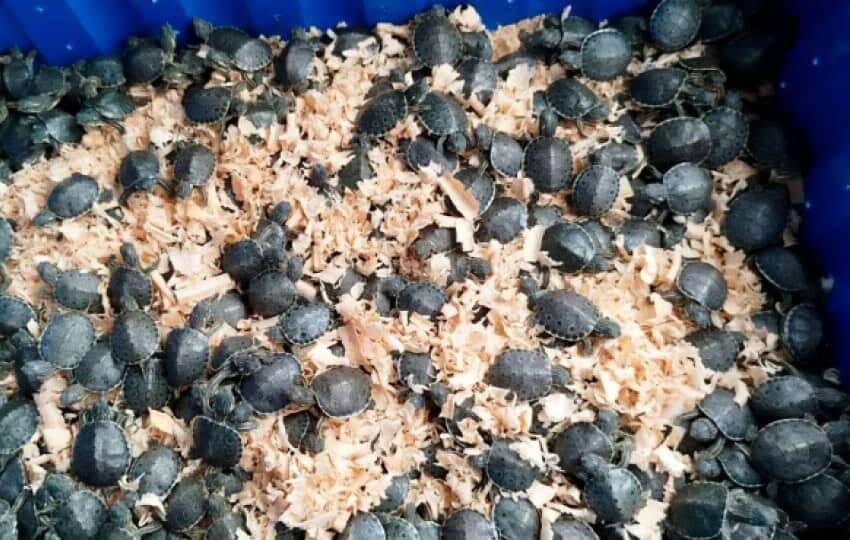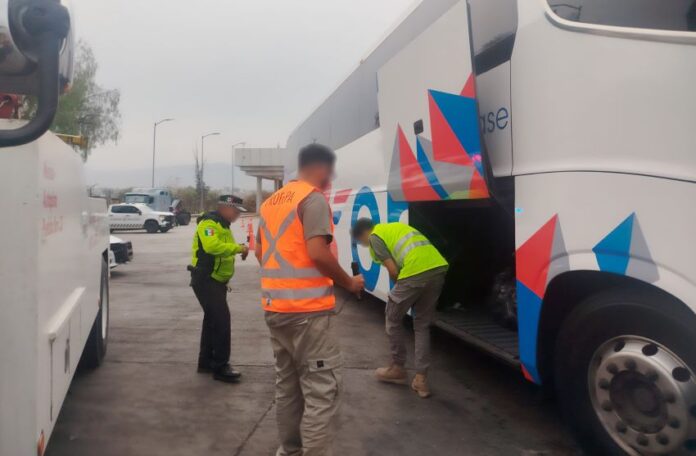Mexican authorities seized 320 baby peacock turtles being smuggled on a passenger bus, the Federal Attorney for Environmental Protection (Profepa) announced this week.
The hatchlings were found Saturday during a roadside inspection on the Mexico City-Puebla highway, as part of an operation to combat illegal wildlife trafficking. The seizure came seven months after authorities seized 200 turtles at the Mexico City International Airport (AICM).

Supported by the National Guard, the Profepa operation conducted searches of 65 intercity buses, two cargo vehicles and one private car.
The checkpoints were set up on the Mexico City-Puebla highway because it’s “the main entry route for transportation from the southeast of our country, a region of utmost importance for biodiversity and where various species are illegally extracted,” Profepa said in a statement issued Monday.
The halted vehicles were coming from the states of Chiapas, Tabasco, Veracruz, Oaxaca and Puebla, Profepa added.
The baby turtles were discovered in a box on the bus, but Profepa and news reports didn’t specify if it was in the underbus luggage hold or in the overhead storage area. Also not mentioned was the identity of the culprit or culprits.
Profepa did point out that “the document proving the specimens’ legal origin contained irregularities” and that the 320 hatchlings “were placed under precautionary custody and transferred to a wildlife conservation and research center, where they are now receiving the necessary care.”
“Profepa will continue to conduct random operations at various highway crossings as part of its strategy to prevent illegal wildlife trafficking,” Mariana Boy Tamborrell, head of Profepa, said in the press release. “We are committed to curbing this crime and protecting wildlife populations from the enormous impact caused by illegal extraction.”
Boy Tamborrell was in the news just two weeks ago, when Profepa shut down the dolphin show at the Barceló Maya Grand Resort in Quintana Roo.
Profepa identified the 320 found turtles as Trachemys venusta, sometimes known by the common name of Meso-American slider turtle. They’re also called peacock turtles for the vibrant green, orange and yellow patterns on their adult shells that resemble the eye-like patterns on peacock feathers.
The semi-aquatic, freshwater species plays an important role in aquatic ecosystems by helping to maintain balanced populations of plants and small aquatic animals. They are typically found in slow-moving rivers, ponds and marshes, and are native to the humid regions of southern Mexico.
However, due to habitat destruction, pollution and illegal trafficking, their populations are at risk in some areas.
Though not an endangered species globally, Trachemys venusta in Mexico is classified as “under special protection” due to heavy exploitation for food and commercial purposes.
Wildlife trafficking is considered one of the most lucrative environmental crimes globally.
Profepa, which also seized a spotted jaguar cub in Oaxaca on Tuesday, said it will continue to monitor roadways across the country, particularly those connected to high-biodiversity regions.
With reports from La Jornada, El Financiero and El Universal
